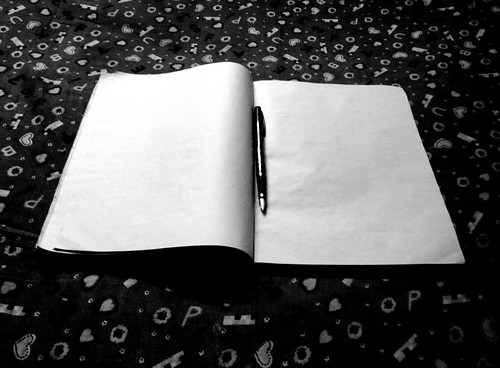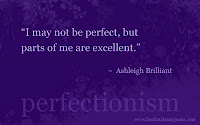Yesterday
Stacey asked in the comments if I would do a post on dialogue. So Stacey, here's your request and dedication (said in the voice of
Casey Kasem).
Dialogue is one of my favorite things to write and read. It's a great workhorse in your manuscript and can handle many tasks for you: advancing plot, building tension, revealing character, establishing motivation, and setting tone among other things. And with all these roles to play, make sure it is filling one on of them. Don't have lackluster chatter just to fill space--like anything else in your story, it must serve a purpose.
Okay, so once you have a purpose for your dialogue what dos and don'ts should you watch out for?
Red Flags
Using too much dialect.
--Regional dialects can add authenticity to your story, but too much becomes tiresome to read.
Being too formal. People don't talk in complete sentences all the time.
--"Are you ready to go to school today?" vs. "Ready for school?"
Trying to recreate dialogue too realistically.
--Yes we pause a lot and say um and uh in real life, but you don't need to put that in your writing, unless you are trying to show nervousness or something.
Addressing the person by name all the time.
--Think about how many times you actually say the other person's name when having a conversation--hardly ever. (I used to do this is my writing ALL the time.)
--"I don't know, Bob. Those pants make you look fat." "But Helen, they match my shirt."
Vague pronouns.
--If three women are talking, be careful of saying "she said" and not defining which she it is.
Having characters tell someone something they already know or would never actually discuss just so you can let the reader know.
--"As you know, you're boyfriend cheated on you."
--"You're never going to catch me. As soon as I kill you, I'm going to escape to my secret house in Seattle where no one will be able to find me."
Long drawn out speeches. You're not Shakespeare--drop the soliloquies and monologues.
--Telling in dialogue is STILL telling
Going nuts with non-said dialogue tags or adverbs modifying said.
--In many cases, we're told to use a stronger verb instead of the standard one for verbs such as walked, looked, stood, etc. However, this does not apply to "said". Said is considered invisible to the reader. The shouted/muttered/expressed/pontificated stand out to the reader and remind them that they are reading a story instead of experiencing it.
--This goes for tagging that said with adverbs as well--try to avoid it.
All characters sound alike
--Even without speaker attribution, you should be able to tell most of the time who is talking just by how and what they say.
--Your male lead and female lead should not sound identical. Men and women talk differently. Men, typically, use fewer words to get a point across.
Watch your punctuation.
--Avoid the exclamation point except in rare circumstances--it's melodramatic.
--Semi-colons and colons are not for speech.
--Em-dashes can be used to show a break in thought or an interuption.
--Ellipses can be used to indicate a pause or speech that trails off (use sparingly)
Direct thoughts should be italicized.
--This doesn't mean every thought the narrator has--but a direct thought. Usually you can distinguish them from narrative because they are in present tense vs. past.
--How had she had gotten herself into this position? God, what is wrong with me?
Don't bury your dialogue. I talked about this before, but here is a refresher for those of you who are new to the blog.
Dialogue should be in one of the following structures:
Dialogue(D)-->narrative(N)-->dialogue
"Hello," she said, smiling. "What's your name?"
N-->D
She smiled. "Hello, what's your name?"
D->N
"Hello? What's your name?" she asked.
Don't do what I used to do all over the place:
She grinned at the boy. "Hello, what's your name?" she asked.
--see how the dialogue is buried in the narrative? This slows down your pacing and gives the dialogue less impact. Think of dialogue as a book end--it never should be hidden amongst the books (narrative).
Make your dialogue rock:
Read it out loud or have someone read it to you. Does it sound natural?
Contractions are your friends.
When you can avoid attributions (said), do. Either take them out completely or use action beats.
--She hugged her mother. "I love you." (It is assumed that the person doing the action--the beat--in the sentence is the speaker.)
Ground your dialogue in action. Otherwise, you have talking heads.
--This doesn't have to be for every statement uttered, but people move while they are talking, they sip drinks, smile, adjust their skirt, play with their hair, etc.
--Imagine you are writing a screenplay, the actors would need stage direction to tell them what they should be doing during that dialogue.
So what about you? What are your biggest challenges with dialogue?
**Today's Theme Song**
"Talk to Me"-- Buckcherry
(player in sidebar, take a listen)













